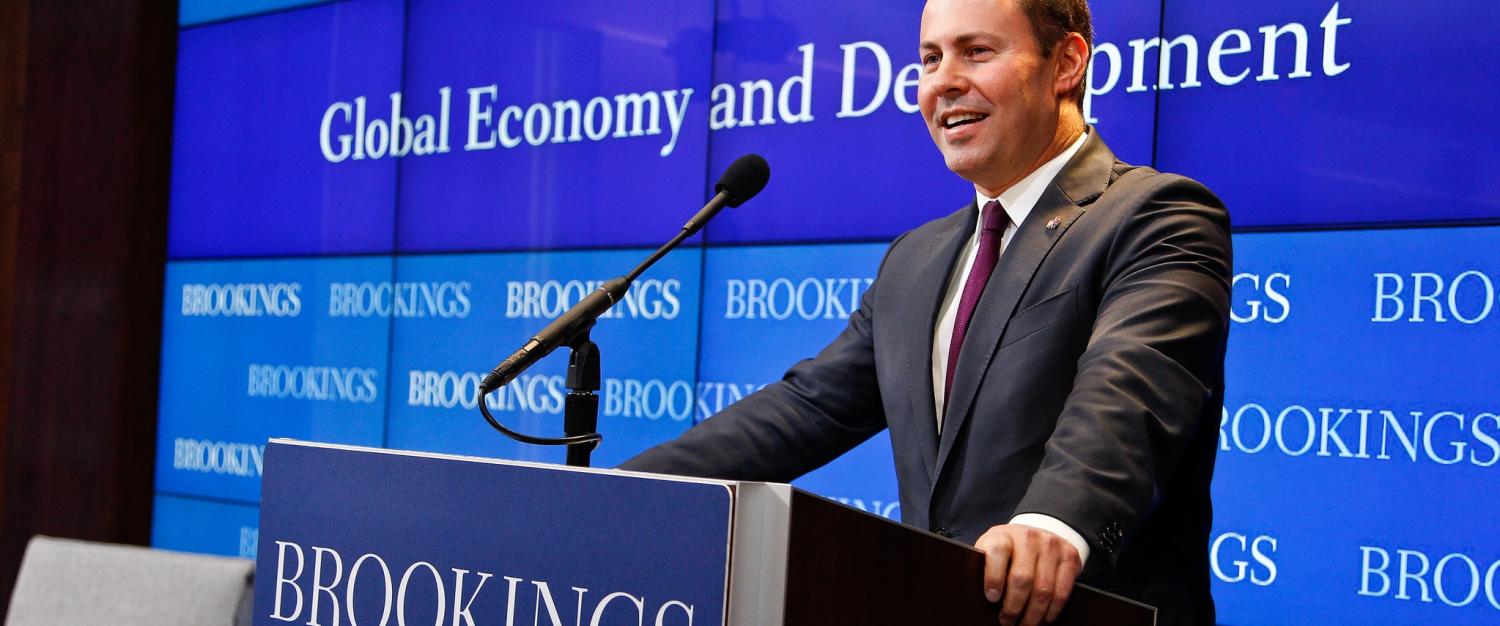The current saga concerning dual citizenship of Australian parliamentarians goes far beyond electoral politics. Australia needs a serious conversation about how it sees itself, contends with its plural nature, and how its internal character and national spirit fosters engagement with global society.
Most of the media focus has been on who will be deemed ineligible and how this will affect numbers in parliament. Prime Minister Malcolm Turnbull's decision to abandon a sitting week appears a case in point. But the consequences of the drama for Australia's highly plural civil society has largely been ignored. As at the core of this issue remains an attempt to define 'national loyalty', with a division created between those who are and are not sufficiently loyal.
Liberal democratic states such as Australia are defined by their ability to embrace, or at least absorb, pluralism. This pluralism is a recognition of humanity's capability to adopt or tolerate more than one approach of life. For an immigrant society like Australia, it is especially important to recognise that an attachment cultural heritage and a commitment to Australia's national interests are not necessarily mutually exclusive.
Yet 'birth' remains a dominant marker of identity, not matter how problematic. To assume a person is 'loyal' to their place of birth discounts a range of influential factors – from values absorbed during upbringing, to sub-culture, to ideology. It places too much emphasis on a random event and continues to ignore the movement of people as a fairly common occurrence in the modern world, often producing complex ancestries.
Most significantly, it removes power and respect from those who have actively sought to live in Australia. The soft power attraction of the country's values has the potential to be far more potent than simple osmosis, and the questioning of one's birthplace (and the birthplace of one's parents and grandparents) demonstrates a lack of faith in this soft power attraction. Tying identity to birth also creates a loyalty test that one's actions cannot negate. This becomes especially problematic if someone is from a minority community.
Social media made fun by nominating Barnaby Joyce for New Zealander of the year. Those from Anglo-Celtic backgrounds are better positioned to weather any great suspicion due to the ethnic dominance of the group in Australian society. But the situation became highly disturbing when the media decided to 'weed out' Josh Frydenberg as potential dual citizen.
The concept of 'insufficient loyalty' was a driver of the persecution of European Jews during the 1930s that led to Frydenberg's family becoming stateless, and millions of others being slaughtered. This 'body and soul' relationship to the state subsequently became the daily test of loyalty – best illustrated by Václav Havel's The Power of the Powerless – and the dominant feature of life within European totalitarianism. That Australia should even briefly flirt with such notions of loyalty is highly troubling.
Australia's close political cousin Canada has approached its plural and global reality with a maturity that Australia is yet to display. Canada has no provision against dual citizens being elected to parliament embedded in their constitution. The public had few concerns about the recent stint of dual citizen Stéphane Dion as foreign minister (2015-17), and only a minimal amount of fuss was made of Thomas Mulcair's dual citizenship when opposition leader (2012-15).
Canada has had a better understanding of the knock-on effects of economic liberalism, comprehending that open markets require open arms, hearts and minds. This includes the recognition that people who move internationally will retain cultural connections, and that a certain amount of leeway and trust needs to be given on the idea of 'national loyalty'. Canada's qualification to become a member of Parliament is simply tied to the right to vote. If you are entitled to vote, you are entitled to become a candidate, a concept that University of Queensland legal scholar Graeme Orr has suggested Australia should adopt.
Australia should consider how the High Court's current interpretation of Section 44(1) could dissuade people from seeking office. It could potentially set up a two-tiered citizenship, preventing full democratic participation by a large group of citizens who have both Australia's best interests at heart and a desire to maintain civic connections with their cultural heritage.
This should also be a practical consideration. It is in the national interest to have a population with intimate knowledge and experience within other countries. This is achievable without multiple citizenships, of course, but an extra passport remains highly advantageous tool for global opportunity. With a population of only 24 million people, Australia needs to facilitate its international links, and parliamentarians are essential as representatives of the public and the state.
Furthermore, a strict territorial nationalism limits the ability of Australia to engage in mutually beneficial, trust-building and cooperative behavior. It maintains the perspective of a world filled with 'hostile states' (and their subversive agents), even though the number of countries that Australia would deem hostile has significantly decreased since the end of the Cold War. A cooperative, interconnected humanity remains an aspirational idea, one Australia should strive to promote as an essential component of both its physical and economic security.
How Australia sees and projects itself is an important facet of its international relations. The current display of insularity demonstrates a continued suspicion of the world, an insecurity that is morphing a fear of abandonment into a fear of disloyalty.

